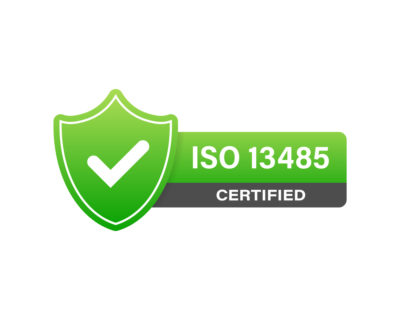
Navigating Language Requirements in the EU: Legal Translations and Compliance Across Member States
The EU is a multicultural construct in which some European countries, with their own languages and legal systems, come together to achieve a common goal – in 24 official EU languages! While multilingualism contributes significantly to the success of the EU and is actively funded, it can be a challenge for law firms and businesses operating in different member states.
When doing business in the European Community, it’s not enough to be familiar with EU laws and regulations and local national laws. Companies and law firms also need to ensure that they meet each country’s language requirements and do so cost-effectively. As a language service provider with extensive experience in the legal sector, in this blog post we’re going to take a look at the different language requirements in the EU and some member states and explain how they affect legal translation and interpreting services.

The importance of linguistic diversity for the EU and the need for translations
One of the EU’s aim is to protect Europe’s rich linguistic diversity. To do so, it funds and promotes a number of projects to improve multilingualism, e.g. by setting up the European Master’s in Translation (EMT) project.
Linguistic diversity is firmly safeguarded by Article 22 of the EU Charter of Fundamental Rights. As a result, not only the publication of all legal acts and summaries but also communication with the EU institutions is carried out in all 24 official languages. Meetings of the European Council and the Council of the European Union are also interpreted into all of the official languages.
The language requirements are not limited to communication and information from or with the EU itself. The EU also has rules and regulations for the exchange of information between member states, like in EU Regulation 2020/1784 on the service in the member states of judicial and extrajudicial documents in civil or commercial matters.
Within this regulation, the general necessity for translations and the possible consequences of not providing enough of them are addressed. Take a look at article 9 “Translation of documents” and article 12 “Refusal to accept a document,” for example. Article 12(1) is very specific.
“[t]he addressee may refuse to accept the document to be served if the document is not written in, or is not accompanied by a translation into, either:
- a language which the addressee understands; or
- the official language of the Member State addressed or, if there are several official languages in that Member State, the official language or one of the official languages of the place where service is to be effected.”
When it comes to dealing with the EU, as these examples show, legal translations and interpreting services are a necessity and must be a part of every operational strategy.
Understanding Language Requirements across EU Member States:
In addition to the EU requirements, each member state has its own specific language requirements for legal documents used in courts, presented before authorities or issued to employees. Here’s an overview of three countries:
Spain:
In a country with such a rich legal tradition, language requirements are crucial in legal proceedings. Spanish (Castilian) is the official national tongue, but regional languages such as Catalan, Galician, and Basque are “co-official” in their autonomous communities.
When it comes to legal documents, translations into Spanish are generally accepted nationwide. However, in regions where regional languages have a significant presence (in, for instance, Catalonia, Valencia, the Balearic Islands, Galicia and the Basque Country), bilingual documents may be required for official purposes. In Catalonia, legal translations may be necessary in both Spanish and Catalan.
If someone can’t understand the regional language, the court will appoint an interpreter to provide a translation into Spanish.
Germany:
Deutschland has a complex legal system with strict language requirements. German is the official language of the country, although there is an exception when it comes to Sorbs (a recognized national minority). In accordance with § 184 of the German Courts Constitution Act (GVG) Sorbs must be able to speak Sorbian in the courts in their home regions (Brandenburg and Saxony).
Legal documents must be submitted to courts and authorities in German, unless specified otherwise.
France:
La République, with its rich legal history, places a high premium on language compliance in the legal sphere. French, as the official language, is typically required for all interactions with the state and courts. An interpreter may assist a party during the hearings but judges don’t have to use one if they know the language the party is speaking. However, minority languages do exist and are recognized in article 75(1) of the constitution. In regions with their own languages such as Breton, Occitan, and Alsatian are spoken, provisions may exist for bilingual or multilingual documents.
Legal Translations: A Crucial Component of Cross-Border Operations
Legal translations are the basis for smooth communication in legal matters that crisscross frontiers within the EU. Whether it’s contracts, court documents, patents or regulatory filings, a professional translation is usually a non-negotiable.
The keys to a high-quality legal translation are:
Law firms and companies tend to rely on language service providers to deliver accurate translations that uphold the due process of court proceedings while ensuring compliance with local regulations.
SeproTec Multilingual solutions has more than 25 years’ experience in the translation and localization industry and is an expert in the field of legal translations, court translations and interpreting, as well as sworn and patent translations.
Our team of qualified professionals has extensive experience in providing professional translation and interpreting services to law firms, legal departments, public authorities and government agencies. Translating contracts, corporate documents, court judgments, legal acts, pleadings, legal opinions, documentation of arbitration and mediation proceedings, notarial deeds, public procurement documents, and various others are some of the daily assignments we take on.
Whether it is civil, criminal, constitutional, administrative, labor, commercial, international, tax or environmental law, get in contact with our team to find out how we can help you with your projects.
There are no comments




Leave a comment